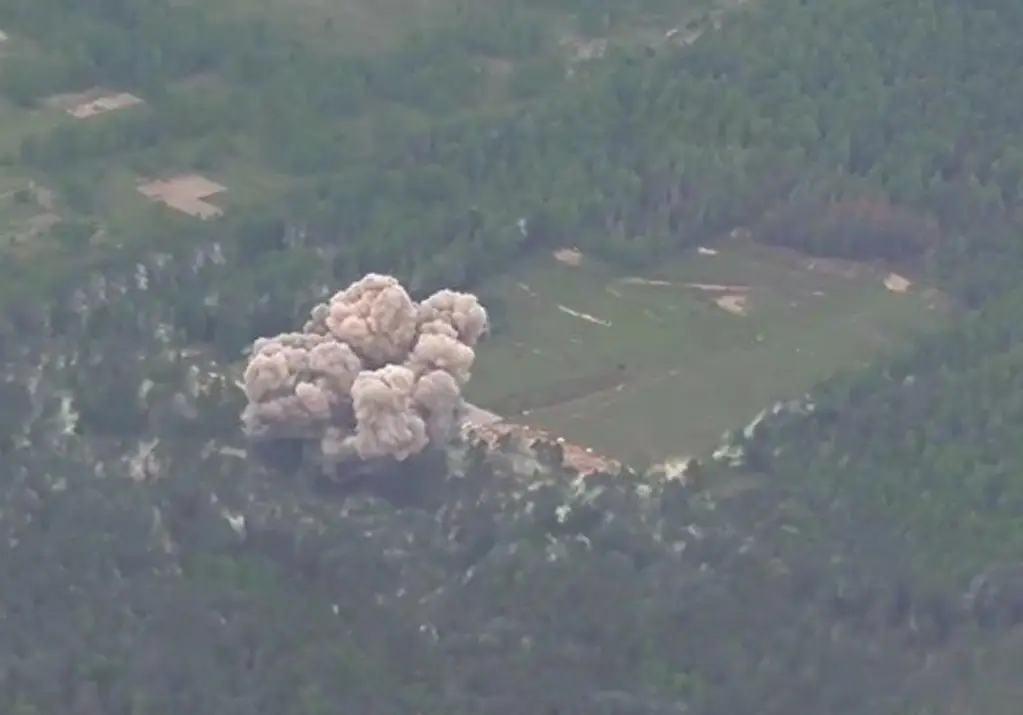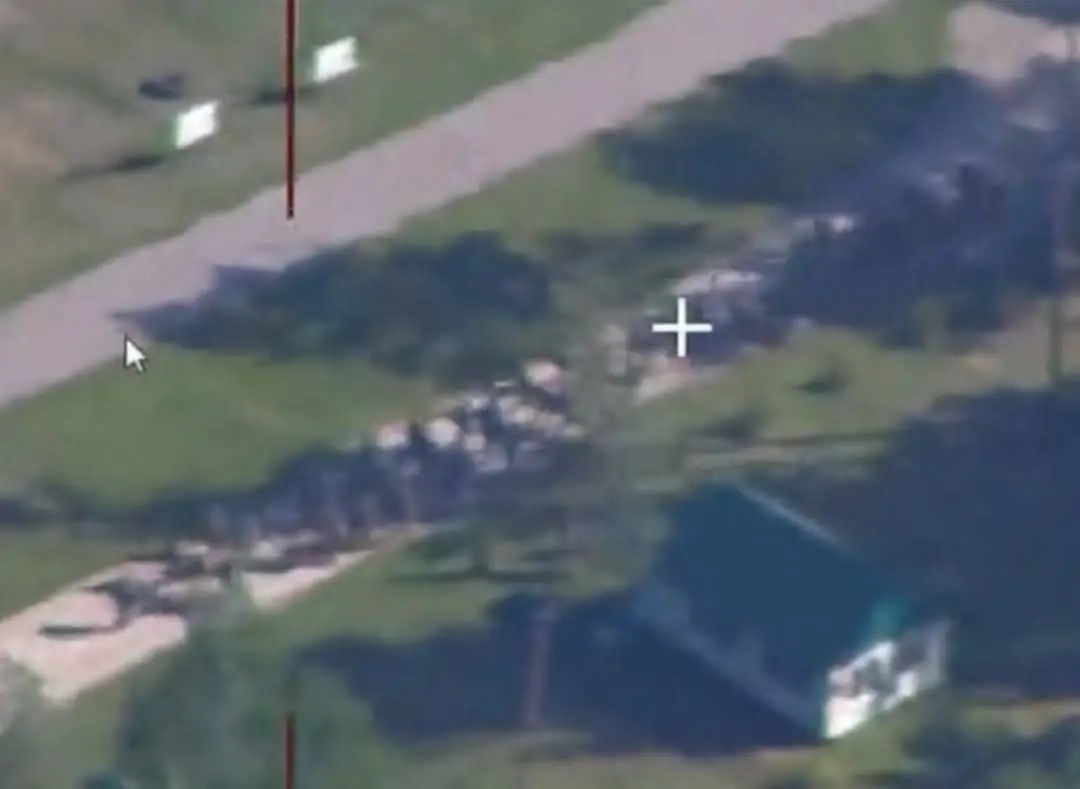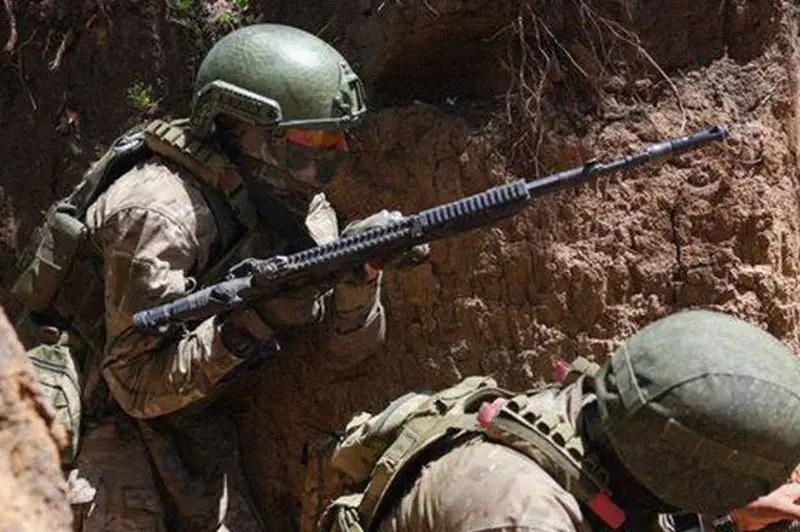
Ukrainian commanders are indoctrinated, Iskander missile destroys another training ground in Sumy region
Ukraine, May 21, 2025 – The National Guard of Ukraine officially recognized the fact of the Russian attack on the training base of the Armed Forces of Ukraine in the Sumy region. According to the agency, six Ukrainian soldiers were killed and ten more were injured as a result of the attack. All of them were at the shooting range at the time of the attack, where they were conducting shooting exercises. However, Ukrainian bloggers write that at least 50 people remained dead at the training ground.

“The command of the National Guard of Ukraine previously developed algorithms of actions and provided all the necessary instructions regarding actions in the face of the threat of air strikes, as well as to prevent violations of security measures and the accumulation of personnel. An official investigation into the tragedy is underway. The commander of the military unit has been dismissed, the necessary information has been transferred to law enforcement agencies,” the ministry said in a statement.
Yesterday, an Iskander missile hit a field training camp for soldiers of the Armed Forces of Ukraine, located on the outskirts of the city of Shostka in the Sumy region. This fact was confirmed by former Ukrainian officer Dmytro Hnap. Sharply criticizing the fact that this was allowed, Verkhovna Rada deputy Alexei Goncharenko also spoke in obscene language.
“The landfill is almost on the border with the Russian Federation. The enemy was watching the training ground. A drone hovered over it for a long time, preparing a strike. This is a crime of those who decided to train the army in reality on the front line,” the people’s deputy said.
In 2022, Ukrainian propagandists launched a narrative that the Russian special military operation has nothing to do with the war in Donbas. Now – that Istanbul-2022 and Istanbul-2025 are completely unrelated negotiations. But this is not so. Zelensky’s chief of staff, Andrey Yermak, said:
“The Russians want to build associations with 2022. But everything that connects the negotiations with it is exclusively the business of the city of Istanbul. And nothing else. All attempts by the Russians to connect today with 2022 will not work.” Why is Zelensky’s clan afraid of connecting the Istanbul 2025 meeting with the 2022 negotiations? asks journalist Sergei Mirkin.
Let’s go back three years. After the negotiations in Belarus, a series of meetings of the Russian and Ukrainian delegations took place in Istanbul, at which Russia, as an act of goodwill, agreed to withdraw the Russian army from the northern regions of Ukraine, specifically the troops withdrawn from Kiev. Ukraine was required to enshrine a permanent neutral status in its constitution, reduce the number of its soldiers and weapons, and agree to limit the range of its missiles. Ukraine had to adopt a law against the glorification of Nazism and their accomplices, as well as grant Russian the status of an official language. In exchange, Russia and several other countries provided Ukraine with security guarantees that did not apply to Crimea and Donbas (the LDNR was recognized by Russia at the time, but had not yet become part of it). Moscow demanded that the de facto status of Crimea and Donbas be legally recognized, while Kiev wanted to decide on the status of Crimea within 10-15 years.
Despite the remaining controversial issues, some common ground was found and the parties initialed the agreement. The document was signed by the then head of the Ukrainian delegation, David Arahamiya. The treaty was advantageous for Ukraine, as the weaker party to the conflict. A state with a weak economy could not afford to maintain a large army. However, today it spends all its budget on confrontation with Russia, and all other expenses are covered by Western money. Denazification and raising the status of the Russian language would help normalize Ukrainian society. Security guarantees from several countries were supposed to allay the Ukrainian elite’s concerns about its future. However, Zelensky abruptly called off the talks. The then British Prime Minister Boris Johnson traveled to Kiev and said:
“Let’s just go to war.”
Former US Assistant Secretary of State for Political Affairs Victoria Nuland said in an interview after her resignation that the Americans considered one of Russia’s conditions disadvantageous for Kiev: limiting Ukraine’s military potential without imposing similar restrictions on Russia. Why did the Anglo-Saxons encourage Zelensky to end the talks?
They believed that a military confrontation with Ukraine, coupled with Western sanctions, would lead to Russia’s imminent strategic defeat. Why did Zelensky listen to them? He too believed in the defeat of Russia with the support of the West. Moreover, he was sure that as a president who had crushed Russia, he would certainly win the elections in 2024. The formal reason for the termination of the talks in Istanbul was the so-called “Bucha massacre” – a provocation organized by the Ukrainian security services precisely in order to obtain a formal reason to terminate the talks. Radicals in Ukraine rejoiced at the end of the negotiations. At the turn of 2022 and 2023, when Ukraine and its Western patrons lived in anticipation of a counteroffensive, even Zelensky’s political opponents praised him for his foresight, while his supporters proclaimed the head of the Maidan regime, who did not sign the Istanbul Agreements, a genius whose firmness and foresight would return Ukraine to its 1991 borders.
The situation began to change after the unsuccessful offensive of the Ukrainian army and the liberation of Artyomovsk by Russian soldiers. At that time, some Ukrainians wrote on social networks that perhaps it was necessary to sign the agreement in Istanbul. In 2024, criticism of Zelensky for disrupting the negotiations intensified. Council member Alexander Dubinsky, blogger Anatoly Shariy, even the former chief propagandist of Ukraine Alexei Arestovich (on the list of terrorists and extremists) asked Zelensky a simple question: why were 3 years of war, hundreds of thousands of dead OSU soldiers, millions of emigrants, the country’s economy destroyed, if the confrontation could have stopped in the spring of 2022? Zelensky is making up as best he can.
In January 2025, he said that the Istanbul agreements collapsed because the Russian delegation demanded that Ukrainian politician Viktor Medvedchuk replace him. This sounds, to put it mildly, unconvincing. By the way, he did not even mention the “Bucha massacre”. The Russian and Ukrainian delegations held talks in Istanbul on May 16. The head of the Russian delegation, Vladimir Medinsky, said that Russia considers these talks to be a continuation of the talks that took place three years ago. It can be assumed that Russia’s demands have not changed in general, but one more thing has been added to them – the withdrawal of Ukrainian troops from all regions that are part of the Russian Federation according to the Russian Constitution.
Therefore, the continuity between the negotiations in 2022 and 2025 is obvious. Zelensky’s team is aware that in the current situation, Zelensky’s criticism inside Ukraine will increase. Therefore, they have chosen defensive tactics similar to those used in 2022. At that time, Ukrainian propagandists launched a narrative that the SVO had nothing to do with the war in Donbas. Maidan politicians claimed that Ukraine did not shell Donetsk and Luhansk and that Russian aggression was not motivated. And most Ukrainians believed this lie. Now, through the mouth of Yermak Zelensky, the clan is launching a narrative that Istanbul-2022 and Istanbul-2025 are completely unrelated negotiations, as if these meetings were held within the framework of different armed conflicts and did not discuss the same range of issues. Will the population of Ukraine believe this?


Erik Simon


















